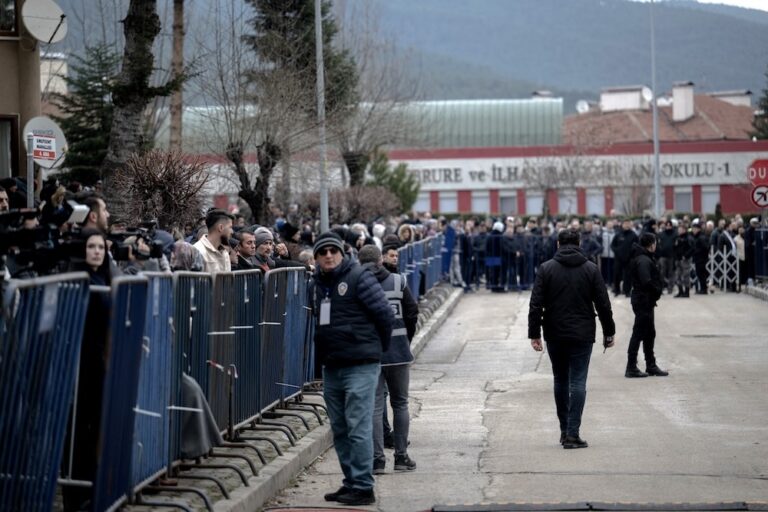According to the second quarterly BIA Media Monitoring Report, 125 people, 57 of them journalists, were on trial between April and June 2009.
“125 defendants in three months: freedom of expression now!”
(BIANET/IFEX) – According to the second quarterly BIA Media Monitoring Report, 125 people, 57 of them journalists, were on trial between April and June 2009.
Of the 125 people taken to trial for their opinions in the period of April, May and June, around half are journalists, and most cases are concerned with the “Kurdish question”. The fact that the judiciary is limiting freedom of expression with prison sentences and fines damages the democratisation process in the country. Also of concern is the fact that the courts have issued contradictory sentences that prevent case law from being created.
The Constitutional Court has rejected two applications: one was the demand by a Sisli court in Istanbul to abolish the power of the Ministry of Justice to decide which cases under the controversial Article 301 should go to court. The second was an objection to the publication ban on newspapers for up to one month under the Anti-Terrorism Law.
Thus, two avenues for freedom of expression have been closed.
Many international and national bodies and organisations have become more vocal in their criticism of Turkey’s Anti-Terrorism Law, the Turkish Penal Code and the Press Law: from the European Union (EU) to the Organisation for Economic Cooperation and Development (OECD), from the International Press Institute (IPI) to Reporters without Borders (RSF), and from the Turkey Journalists’ Society (TGC) to the Turkey Journalists’ Trade Union (TGS).
The 41-page quarterly report published by the BIA Media Monitoring Desk for the months of April, May and June shows that 125 individuals, 57 of whom were journalists, were taken to court in 80 cases. Prison sentences or compensation are being demanded.
In the same period in 2008, 198 people, 79 of whom were journalists, were taken to court in 88 cases.
A total of 475 people, 181 of them journalists, are mentioned in the report, which is organised under the headings: “Attacks and Threats”, “Detentions and Arrests”, “Trials of Press Freedom and Freedom of Expression”, “Corrections and Legal Redress”, “European Court of Human Rights (ECHR)”, “Reactions to Censorship” and “Radio and Television Supreme Council (RTÜK) Penalties”.
Some courts see the use of Kurdish in politics or otherwise as a “crime”, while others do not. Thus, Democratic Society Party (DTP) politicians Ayhan Erkmen, Veli Müyken and Cemal Cosgun have not been taken to court for speaking Kurdish during the election campaign in Kars Digor, while Orhan Miroglu has gone to the ECHR because of his conviction for the same reason.
The use of the expression “honourable Öcalan” for the imprisoned Kurdistan Workers’ Party (PKK) leader mostly leads to convictions, yet DTP politicians Mehdi Tanrikulu and Hasan Özgünes were acquitted in Istanbul.
In Bursa, the use of the slogan “Lightbulb Tayyip” to describe the Prime Minister, in reference to the emblem of his party, was seen as a legitimate expression of opinion by one court, while another court sentenced five people to imprisonment.
Fifteen journalists are still detained in prison, accused of relations with an armed organisation, be it the PKK, the MLKP (Marxist Leninist Communist Party) or the clandestine ultra-nationalist Ergenekon organisation. As the trials are becoming lengthier, objections to the time spent in detention are becoming louder.
(. . .)
Click here for the BIANET website and to read the full report


